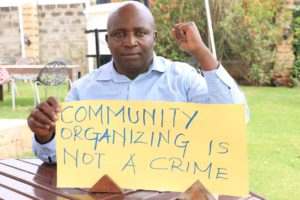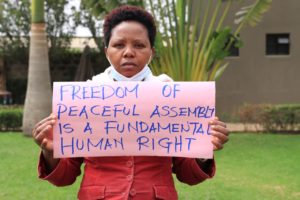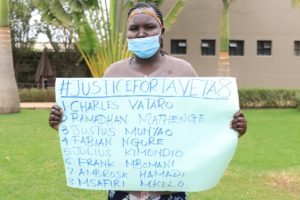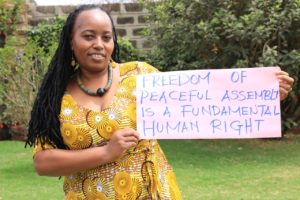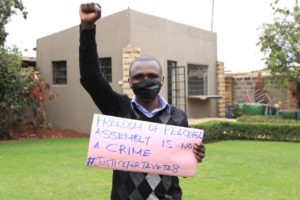Today, we speak as environmentalists, conservationists, civil society organizations and advocates of the earth to demand action from our leaders, starting with the President of Kenya, the Directorate of Criminal Investigations (DCI), the Kenya Forestry Service and the Ministry of Environment and Forestry, to thoroughly investigate the murder of Joannah Stutchbury. This Kenyan Environmental Defender was killed yesterday, 15th July 2021, at around 16h35 (EAT) just outside her home. Kenyan authorities must ensure that the killers, who dared to murder her in broad daylight, face the full force of the law.
The preamble of our Constitution states that we are “RESPECTFUL of the environment, which is our heritage, and determined to sustain it for the benefit of future generations” Article 42 guarantees all Kenyans the right to a clean and healthy environment.
Unless environmental defenders are effectively protected, we will be forced to continue to attend their burial ceremonies. Their only crime was to stand and protect the Constitution that we dearly love.
Crimes against the environment are the fourth largest criminal enterprise – only drugs, counterfeiting, and human trafficking beats it. Environmental crimes (experts prefer the term ecocide) ranks higher than the sales of illegal arms. Threats to active environmental protectors have claimed the lives of the courageous ivory investigator Esmond Bradley Martin, Esther Mwikali, Sengwer Robert Kiprotich, and forced Phyllis Omido and other environmental defenders into hiding recently.
We are alarmed at the rate at which human rights activists, environmentalists, and conservationists are threatened, harassed, and killed each day in Kenya and worldwide. At the same time, the perpetrators continue to scour the country free from any repercussions.
Joannah was a dedicated and committed conservationist and an ambassador of the forest who never turned a blind eye when she saw illegalities within the Kiambu forest. We believe this is the reason why she was killed.

We are fully cognizant and applaud the President, His Excellency Uhuru Kenyatta, for condemning this act of cowardice from the perpetrators. Indeed, they saw no other way to silence our beloved Joannah – who made bold statements favouring the environment, including protecting our forests – but by killing her.
For this reason, we, as organizations from all parts of the country, the African region, and the world, condemn this senseless killing and call for justice for Joannah and all the other environmental and human rights activists who have lost their lives while defending the integrity of our environment and natural heritage. These fierce and courageous defenders have met their untimely death while trying to leave behind a better world for the next generation, for being the voices and guardians of the trees in the forests that give us the oxygen that we breathe and the wildlife that attracts billions of shillings as foreign currency from the tourists that visit this nation.
Protecting our environment, wetlands, and forests is not optional. It is a precondition for the survival of Kenya.
It is for all the above reasons that we demand:
A. The President
1. Ensure the DCI takes this matter seriously and proper investigations are done.
2. Direct the Ministry of Environment and Forestry, as well as the Kenya Forestry Service, to come up with a plan of protecting and, where appropriate, gazetting all forest lands in Kenya to shield them from land grabbers who see the forests as opportunities to enrich themselves at the expense of our environment and all Kenyans.
3. Nurture, protect and enhance the capacity of forest-dwelling and indigenous communities, like the Ogiek and Sengwer, to defend and protect our forests, lakes, and rivers.
4. To direct, with immediate effect, environmental activists to stop being labelled as anti-development, nay-sayers, disruptors, or a nuisance.
B. The Directorate of Criminal Investigation
1. To thoroughly investigate Joannah’s murder and not leave any stone unturned in their pursuit of the perpetrators. Further, to make public their status report within 14 days henceforth (by 30th July 2021)
2. To prosecute the perpetrators, including their agents and accomplices, of this cowardly and heinous act and ensure that justice is met.
C. The Ministry of Environment and Forestry
1. Coordinate with other relevant ministries and government departments to ensure our environment and forests are not afterthoughts whenever any decisions (be it development projects or otherwise) are made.
2. Work with environment activists, conservationists, forest-dwelling, and indigenous communities to reach a grassroots – grass tops solution to protect our environment, forests, rivers, and swamps from land grabbers.
This statement has been endorsed by the organizations and entities below:
1. deCOALonize Campaign Kenya
2. Wildlife Direct
3. Amnesty International Kenya
4. The Defenders Coalition
5. Center for Justice Governance & Environmental Action
6. Daima Coalition for Green Spaces protection
7. Centre for Natural Resource Governance – Zimbabwe.
|
8. Lawyers for Animal Protection in Africa |
|
9. Centre for Citizens Conserving (CECIC) |
|
10. Inuka Afrika 11. Ubuntu Leadership Academy |
|
12. Champions for Human Rights Education, Mentorship & Advocacy (CHEMA – Initiative) |
|
13. Biogas International Ltd |
|
14. Mt. Kenya Network Forum |
|
15. Creative Spills |
|
16. Southern African Faith Communities Environment Institute (SAFCEI) |
|
17. National Environment Civil Society Alliance of Kenya |
|
18. Centre for Human Rights and Civic Education |
|
19. Arid Lands Action Forum |
|
20. St. Anne Nosirai primary conservation club. |
|
21. Africa Coal Network |
|
22. Greenpeace Africa |
|
23. Community Action for Nature Conservation (CANCO) |
|
24. Africa Coal Network |
|
25. Coordinator |
|
26. Lekeh Development Foundation LEDEF 27. Nigerian Coal Network |
|
28. Green World Kenya |
|
29. Natural Justice |
|
30. Centre for Alternative Development, Zimbabwe |
|
31. Conservation Education Society |
|
32. Kenya Environmental Action Network (KEAN) |
|
33. Wild Law Institute |
|
34. Sierra Leone School Green Clubs (SLSGC) |
|
35. The Green Connection |
|
36. MindMe International, |
and 67 other human rights organizations
The Police Reforms Working Group-Kenya acknowledges and appreciates the preliminary investigation report from the Independent Police Oversight Authority (IPOA) that led to the arrest of the six police officers by the Office of the Director of Public Prosecution (ODPP) for the murder of the Kianjakoma brothers Benson Njiru Ndwiga and Emanuel Marura Ndwiga who were arrested in Kithangari Village in Embu County on 1st August 2021 – for allegedly violating curfew orders.
As the investigations progress we urge the investigators to:
a. Ensure that the specific individuals responsible for the actual assault an torture to death are identified among the six and, or any other officer;
b. Ensure that officers who are complicit for witnessing and protecting the actual assault and torture suspects are identified;
c. Ensure command responsibility for the killing and dumping the bodies, and failure to report deaths in police action as required by IPOA and NPS Acts..
We are however disappointed that no police commander who bears the highest responsibility was arrested and charged. Neither the Ward, Sub-County, County nor Regional Commanders are on the list of those brought to court yesterday. While pursuing individual criminal responsibility is critical in this case, we believe that by accountability at command level will send a strong and unequivocal message that criminality within the Service will no longer be tolerated.
We commend Kenyans from all walks of life for rising up and speaking about brutality of police officers against civilians, and the systemic nature of this criminality. This is a sure testament that if we come out as a country and speak out on what is wrong, swift action will be taken, but we shall save many more lives. We call upon Kenyans not to drop the baton on their quest for human rights and better policing.
We are cognizant that even after the murder of the two brothers, there was still another unwarranted killing and serious gunshot injuries to 4 persons in Kianjokoma as a result of unnecessary and excessive use of force and firearms’ against protesting citizens. We urge for speedy conclusion in this case including identifying:
We call for speedy conclusion of investigations into the;
a. specific officer (s) who fatally shot and killed Moses Kimathi Njiru
b. specific officer(s) involved shooting and serious injury of 4 persons who are still in the hospital;
c. command responsibility for the indiscriminate shooting and violence against pubic demo, including the operation order issued with regard to the demonstrations
We call for the arrest of the Ward Commander (OCS) and Sub-County Police Commander (OCPD), County Commander and Regional Commander for their role in the entire incident, and resultant actions and decisions.
We also reiterate the need for immediate placement of all witnesses under the Witness Protection Program for their own safety and security, to facilitate objective investigations and safeguard the integrity of the investigation.
While the effort of IPOA and ODPP are to be appreciated for their role in the investigation and prosecution, we at the Police Reforms Working Group-Kenya, still feel there is more that ought to be done to ensure future deterrent of rogue police officers engaging in wanton murder of the youth.
Once more we are disappointed by the delays of the Office of the Attorney General in operationalizing the National Coroners Service Act 2017, which continues to undermine the criminal justice system in professionally investigating suspicious deaths in police custody and police operations. The Office of Coroner-General would have been called upon to carry out an autopsy, preservation and analysis of other evidence to ascertain the cause of death
including whether they were tortured. Tragically, the National Coroners Service Act 2017 remains inoperational for the last four years. We reiterate our call to the Attorney General to immediately operationalize the National Coroners Service Act 2017.
This statement was signed on 18th August 2021 by members of the Police Reforms Working Group-Kenya, an alliance of national and grassroots organisations committed to professional and rule of law policing. They include:
1. Amnesty International Kenya, 2. Constitution and Reform Education Consortium (CRECO), 3. Defenders Coalition; 4. HAKI Africa, 5. Independent Medical-Legal Unit (IMLU). 6. International Centre for Transitional Justice (ICTJ-Kenya), 7. International Justice Mission (IJM-K), 8. Katiba Institute, 9. Kariobangi Paralegal Network, 10. Kenya’s for Peace, Truth and Justice (KPTJ), 11. Kenya Human Rights Commission (KHRC), 12. Peace Brigades International (PBI), 13. Shield For Justice (SJF), 14. Social Welfare Development Program (SOWED), 15. The Kenyan Section of International Commission of Jurists (ICJ Kenya), 16. Transparency International Kenya (TI-Kenya), 17. Usalama Reforms Forum, 18. Wangu Kanja Foundation, 19. Women Empowerment Link (WEL), 20. Social Justice Centre Working Group.
We, the Police Reforms Working Group-Kenya condemn the deaths in police custody of 22 and 19-year-old siblings, Benson Njiru Ndwiga and Emanuel Marura Ndwiga after they were arrested by police officers in Kithangari Village in Embu County on 1st August 2021 – for allegedly violating curfew orders. Their bodies were discovered two days later by family members at the Embu Level 5 Hospital Morgue.
Whereas Embu North Sub-County Police Commander, Emily Ngaruiya claims that the two died because of head injuries sustained after they ‘discreetly’ jumped out of a moving police van, our preliminary findings contradict this narrative. We, therefore, welcome the move by the Independent Policing Oversight Authority (IPOA) to carry out independent investigations to ascertain their cause of death and whether the police narrative is indeed accurate. We ask for speedy investigations by the IPOA team. PRWG-K has also engaged an independent pathologist to witness the postmortem examination to take place later today.
We sadly note that this is not the first death arising out of police enforcement of COVID-19 measures. Indeed a number of our members have published reports of deaths caused by police while enforcing these measures. The Independent Medico-Legal Unit, for instance, received 25 cases of extra-judicial executions and 43 cases of torture and ill-treatment as a results of enforcement of Covid-19 regulations.
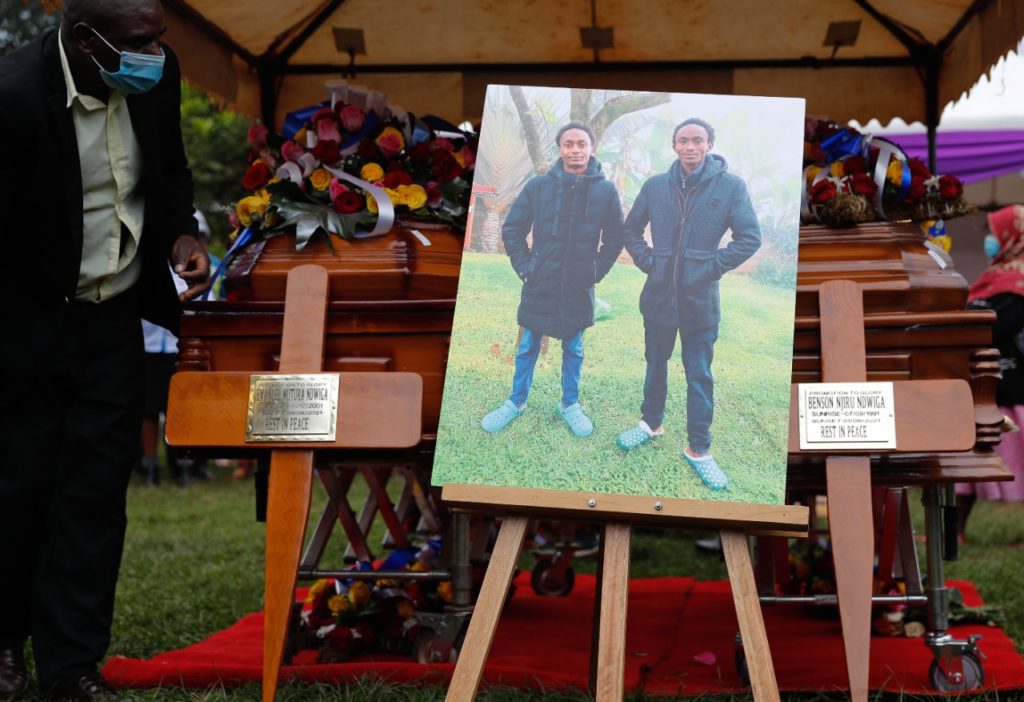
Further, we note that suspicious deaths in police custody are one of the circumstances in which the Coroner’s Office under a Coroner-General, would have been called upon to carry out an autopsy, preservation, and analysis of other evidence to ascertain the cause of death including whether they were tortured. Sadly, the National Coroners Service Act 2017 has not been operationalized since its passage in 2017.
The PRWG-K wishes to remind the police and the government that the Constitution of Kenya 2010 guarantees the right to life, human dignity, security of the person, and freedom from torture, rights of arrested persons, and fair trial. The security apparatus of Kenya is mandated to promote, protect, and fulfill these rights. A breach of these rights is an abdication of duty and illegality that we condemn in the strongest possible terms. It is in this breath that we call upon the Attorney General and the Cabinet Secretary for Interior and Coordination of National Government to immediately set up the law to enhance justice and police accountability in Kenya.
Last week, Chief Magistrate Francis Andayi found Police Officer David Rono culpable in the death of 20-year-old Nura Malicha Molu based on the investigations and evidence produced by IPOA in the inquest. The police claimed that Nura was killed in February 2015 for attacking Officer David Rono during a robbery. However, evidence showed that their testimony was inconsistent; the matter was never reported to the police station and there was no Occurrence Book (OB) entry. Additionally, crucial evidence such as the sword Nura was allegedly wielding during the robbery was never produced for analysis nor was it produced as evidence before the court, including KES 5,000 and a phone that was allegedly stolen and recovered from Nura. The Court noted that the police may have been covering up for their colleagues and ordered the file to be forwarded to the Director of Public Prosecutions for appropriate action.
Furthermore, the PRWG-K calls upon the Inspector General of the NPS to enforce the Sixth Schedule of the National Police Service Act which requires police officers to provide medical assistance when serious injury results from the use of force; and obligates officers to report to superiors and IPOA when death and serious injury results from their actions. The law makes failure to do so a criminal offence which investigators, IPOA, ODPP and the Judiciary should begin enforcing.
The PRWG-K reiterates that for Kenyans to be truly safe and their rights protected, police must conduct themselves in an accountable, professional and human rights compliant manner. Any officer who violates the laws that they are sworn to protect must be investigated and prosecuted.
PRWG-K also takes this opportunity to implore on the members of the public to stay calm and desist from taking the law into their hands as we push the justice actors to speed up investigation and ensure the perpetrators are brought to book. We also call upon them to assist the police with information relevant in the investigations.
This statement is signed on 5th August 2021 by members of the Police Reforms Working Group-Kenya, an alliance of national and grassroots organisations committed to professional and rule of law policing. They include:
1. Amnesty International Kenya
2. Constitution and Reform Education Consortium (CRECO)
3. Defenders Coalition
4. HAKI Africa
5. Independent Medical-Legal Unit (IMLU)
6. International Centre for Transitional Justice (ICTJ-Kenya)
7. International Justice Mission (IJM-K)
8. Katiba Institute
9. Kariobangi Paralegal Network
10. Kenya’s for Peace, Truth and Justice (KPTJ)
11. Kenya Human Rights Commission (KHRC)
12. Peace Brigades International (PBI)
13. Shield for Justice (SJF)
14. Social Welfare Development Program (SOWED)
15. The Kenyan Section of International Commission of Jurists (ICJ Kenya)
16. Transparency International Kenya (TI-Kenya)
17. Usalama Reforms Forum
18. Wangu Kanja Foundation
19. Women Empowerment Link (WEL)
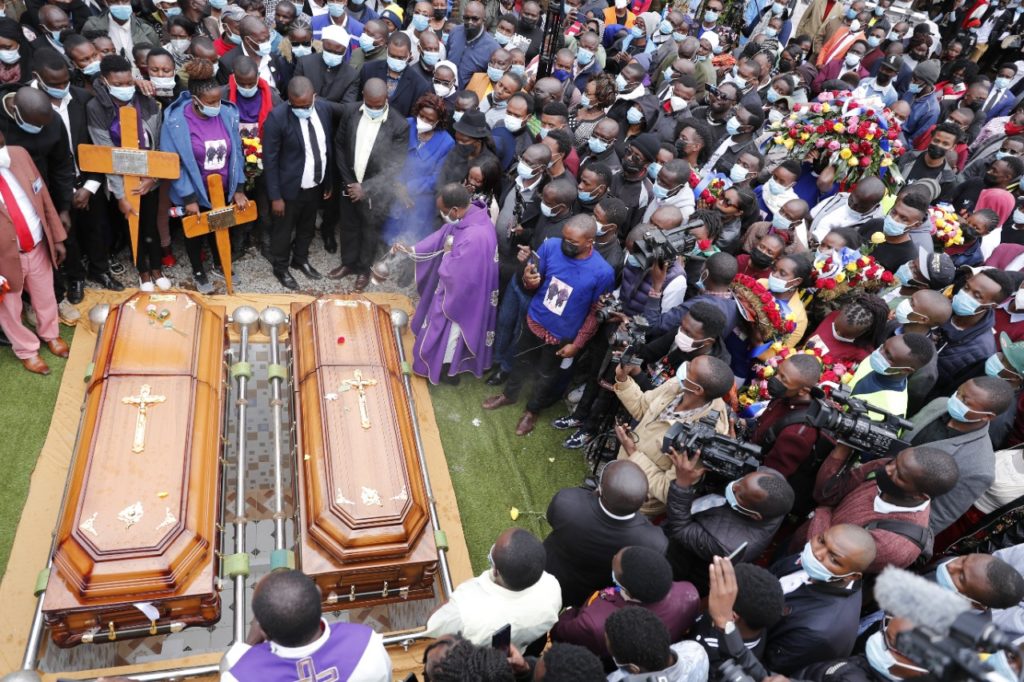
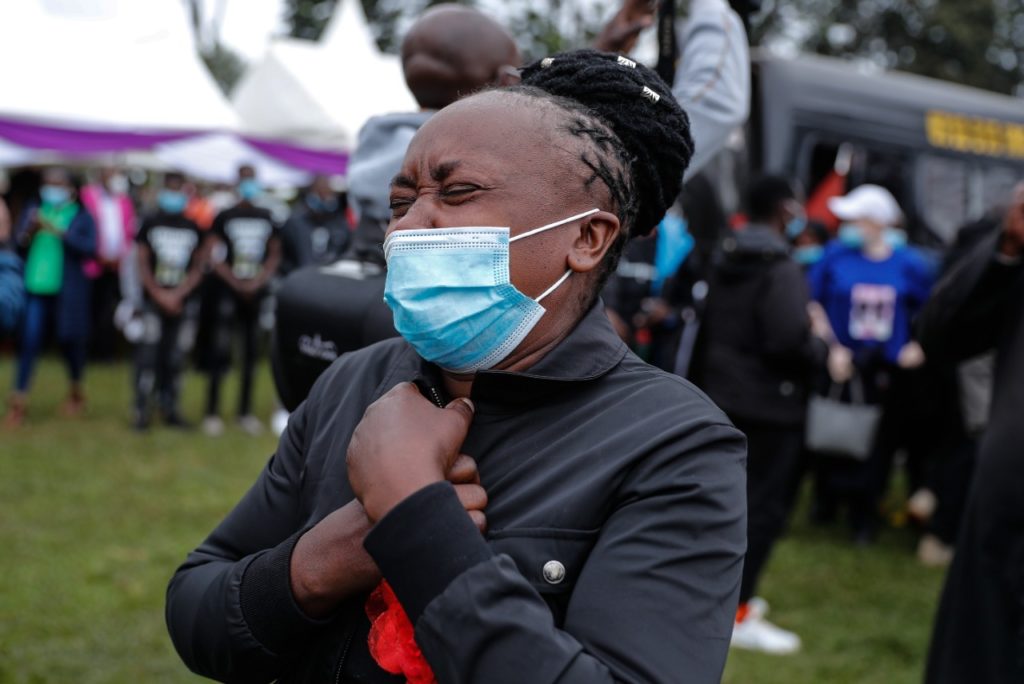 Mother of the two brothers killed by police officers mourns them during her sons’ burial in Embu #JusticeForKianjokomaBrothers
Mother of the two brothers killed by police officers mourns them during her sons’ burial in Embu #JusticeForKianjokomaBrothers
Photos Courtesy: Amnesty International Kenya
Even though Kenya adopted a progressive constitution that incorporates the Bill of Rights in 2010, there still exists in statute books, laws and policies that continue to deprive Kenyans of their rights and impose undue restrictions on fundamental freedoms. This project is premised on the adoption of Resolution 275 by the African Commission on Human and Peoples’ Rights (ACHPR) in 2014. The Resolution recalled the notion of equality and non- discrimination as well as raised concerns on the state and acts of violence and discrimination against LGB/TIGNC persons in Africa. The Resolution also called for action by the state on carrying their due diligence in investigating human rights violations from the group.
SOGIE HRDs in Kenya continue to operate in fear, threats, intimidation and stigmatisation. On 24 May 2019, The High Court in Kenya upheld sections 162 and 165 of the penal code which criminalizes same sex relations among consenting adults. This contradicts Article 27(4) of the Kenyan constitution that states ‘’The State shall not discriminate directly or indirectly against any person on any ground, including race, sex, pregnancy, marital status, health status, ethnic or social origin, color, age, disability, religion, conscience, belief, culture, dress, language or birth.’’ Despite this ruling, the determination of SOGIE HRDs to advance the rights of the SOGIE community in Kenya continues to be a beacon of hope for the community. However, Defenders Coalition noted increased security concerns after the ruling and also with the outbreak of COVID 19 pandemic.
These include but not limited to forced evictions by landlords, non-inclusion of SOGIE issues by actors in the human rights movement, discrimination in religious and social institutions, attacks by family members and in public transport, online harassment, threats to attack their offices and mental torture. SOGIE HRDs are on the receiving end as the community members accuse them of recruiting their children to homosexuality and more or less, SOGIE community members run to them for help in case of attacks. There is the need to build their skills in an effort to support them respond to threats, risks and attacks in their work.
SOGIE HRDs have made inroads in creating partners and allies in their line of work. This includes state agencies and non-state actors. This has happened mainly in areas where there are strong SOGIE organizations and coalitions thus making inroads on behalf of the networks. It is on this premise that Defenders Coalition held a strategic meeting between the Social Justice Centers Working Group in Nairobi and SOGIE HRDs:
Defenders Coalition joins partners of Missing Voices to commemorate the International Day of Victims of Enforced Disappearances. The day is marked on 30 September of every year to bring to light the plight of victims of enforced disappearances, the suffering of their families and degradation of members of the communities within which they live.
Under the auspices of the Missing voices, the Defenders Coalition highlighted online some of the cases that the consortium has documented over the years using a hashtag #WakoWapi and #EndEnforcedDisappearanceNow.
The activities for the day also involved engaging duty bearers within the security sector- due to investigations from the documentations always pointing a finger at them as the prime perpetrators of enforced disappearance.
WHAT IS ENFORCED DISAPPEARANCE
According to the United Nations, a person is said to have been forcefully disappeared when:
“persons are arrested, detained or abducted against their will or otherwise deprived of their liberty by officials of different branches or levels of Government, or by organized groups or private individuals acting on behalf of, or with the support, direct or indirect, consent or acquiescence of the Government, followed by a refusal to disclose the fate or whereabouts of the persons concerned or a refusal to acknowledge the deprivation of their liberty, which places such persons outside the protection of the law.”
The enforced disappearance is a CRIME and is complex in nature. While not being a condition for the crime of enforced disappearance, victims of enforced disappearance are subjected to severe harm and suffering during the period of their disappearance as a result of being placed outside the protection of the law.
The following civil or political rights may be infringed upon in the course of a disappearance:
The serious economic hardships which usually accompany a disappearance are most often borne by women, and it is women who are most often at the forefront of the struggle to resolve the disappearance of family members. In this capacity they may suffer intimidation, persecution and reprisals. When women are themselves direct victims of disappearance, they become particularly vulnerable to sexual and other forms of violence.
In Kenya, there is a high prevalence towards the forceful disappearance of male youth living in informal settlements and coastal regions of Kenya. Cases of bundling up of poor youth being bundled into the back of cars with plain cloth security personnel and never to be seen again are reported almost on a weekly basis.
Read some of the stories on the victims and families of the victims here
https://missingvoices.or.ke/mvoicesarticle/man-mysteriously-disappears-in-police-custody/
https://missingvoices.or.ke/mvoicesarticle/forcefully-disappeared-without-a-trace/
https://missingvoices.or.ke/mvoicesarticle/mother-cries-for-son-missing-four-years-after-police-arrest/
read other stories here
https://missingvoices.or.ke/media-center/
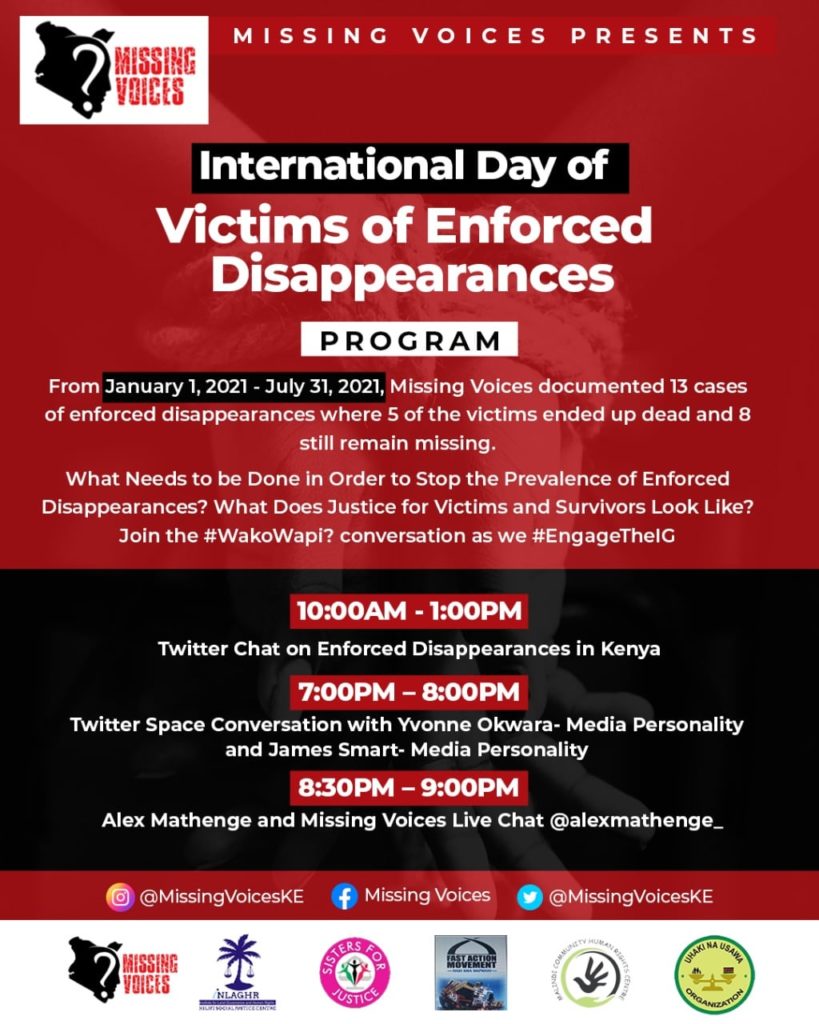
After two years of hard work, dedication, sacrifice and resilience, Climb For Justice campaign turned two on 13 August 2021.
The campaign was launched in August 2019 to create awareness on the work of defending human rights, the triumphs and risks associated with it.
The second phase marked a commencement of the third phase of the campaign. During this phase, climbers aim to summit point Lenana on Mount Kenya on 12 December 2021 through the Chogoria route.
Some of the hiking destinations include Mt. Longonot, William Hill, Eburru Forest, Kudu Hills, Table mountain, elephant hill, Tuthu Falls, Mount Kenya (using the Sirimon gate) and Mount Kilimanjaro.
In the two years of the campaign’s life, over 1200 climbers have actively participated in hiking the different destinations in support of the justice cause.
In the two years, supporters have raised 8.1 million shillings.
The third phase of the campaign will commence their preparations and mobilising of resources by conquering Elephant Hill in The Aberdares on 11 September, Rurimeria on October 9 and Satima Hill on November 13 2021. See attached poster.
What is Climb For Justice
Climb For Justice Campaign “Climb for Justice… Climbing for Human Rights and Justice in Kenya” is rooted in Defenders Coalition’s ongoing work on consolidation and expanding to benefit more people. Defenders Coalition is committed to strengthening its support for the women and men at every village of this country who put their lives on the line to protect the Constitution and human rights at a challenging time.
The need to marshal the resilience of HRDs and build a strong resource hub have been identified as critical in building a sustainable movement of human rights defenders in Kenya. Therefore the campaign is keen to set up a human rights defenders Centre – a vibrant space for those committed to the promotion and protection of the rights of all the Kenyan people as enshrined in our Constitution.

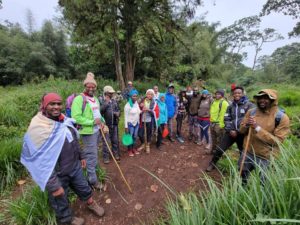
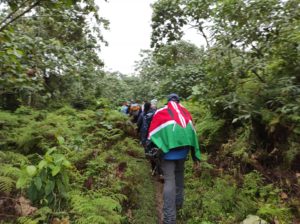
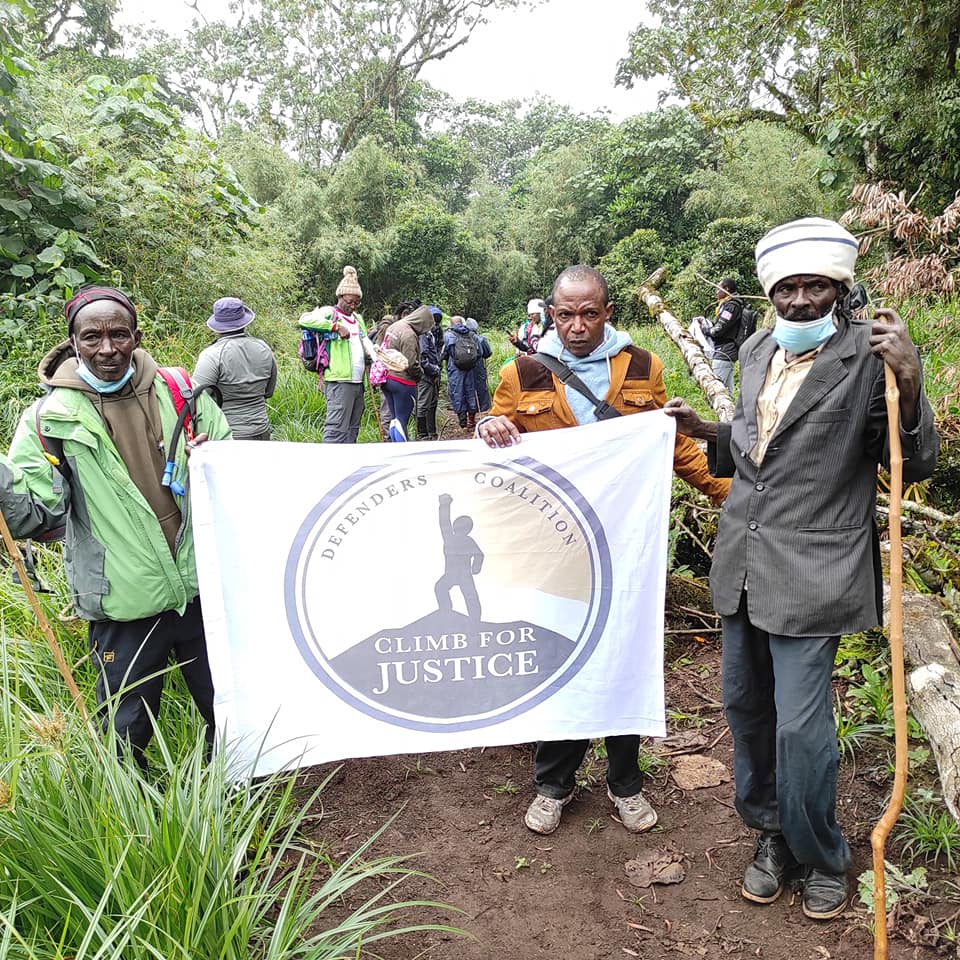
Defenders Coalition conducted a capacity enhancement for WHRDs from different counties: Nairobi, Lamu, Vihiga, Wajir and Elgeyo Marakwet in between july 27 -30 on gendered monitoring, documentation and reporting of human rights violations.
The training was supported by an ongoing partnership with the Embassy of Norway in Kenya under a project dubbed Ni Mama.
Through the project, the Defenders Coalition seeks to support WHRDs through solidarity networks, women specific protection support that include support to families of WHRDs, skills building in the management of physical and digital security as well as monitoring and documentation, wellness and visibility of their role in the promotion and protection of human rights.
Being the second year of implementation of the project, the Defenders Coalition is positive that the partnership has contributed to the reclaiming the space for WHRDs to promote human rights, protest injustices and demand good governance in a safe and secure environment through; undertaking collective safety and security approaches that localize existing national level protection practices through established and upcoming community based human rights defenders’ networks and justice centres; enhancing local urgent protection fund to WHRDs and human rights organizations championing women’s rights and aligning and coordinating strategies of various advocacy groups in Kenya for the protection of women human rights defenders and an enabling environment for civic engagement.
Further, the visibility to WHRDs and their work at county and national level has been enhanced.
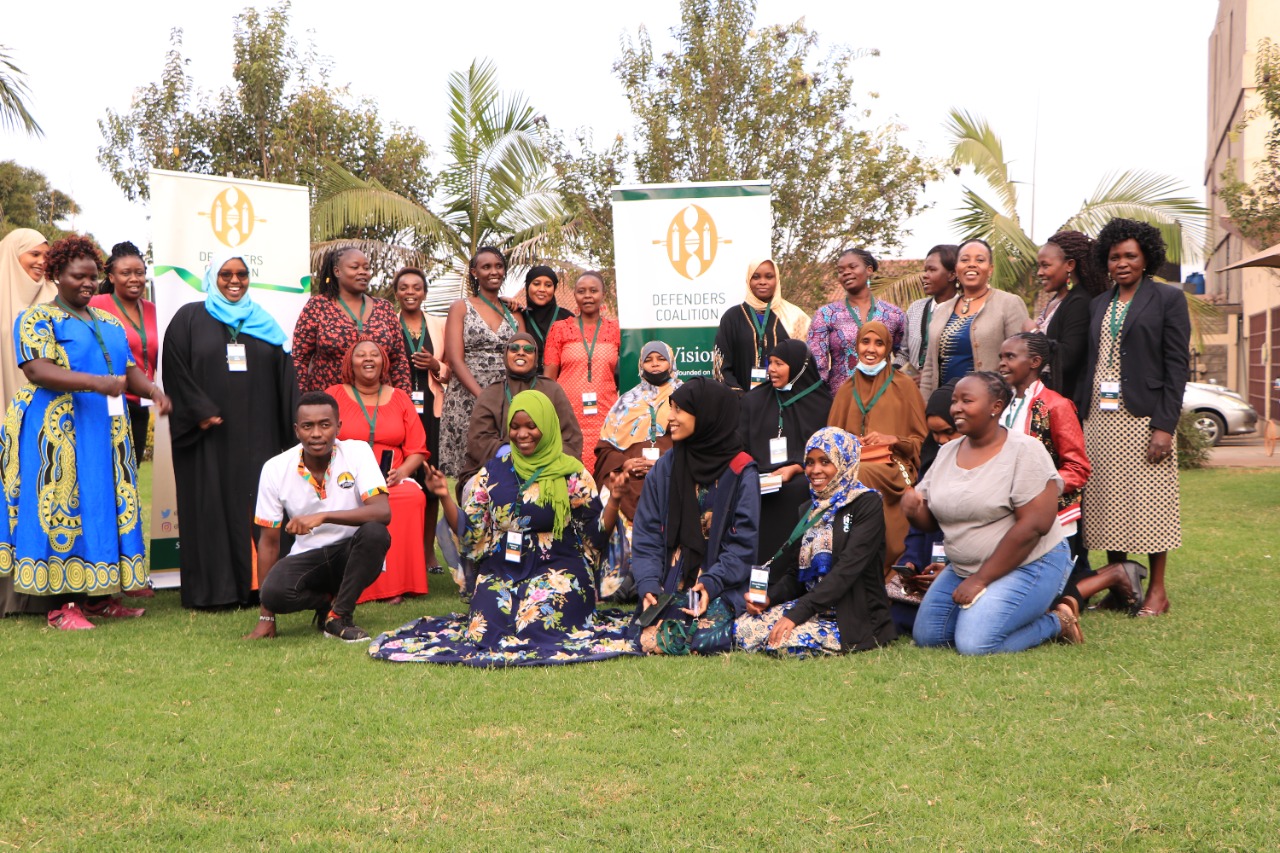
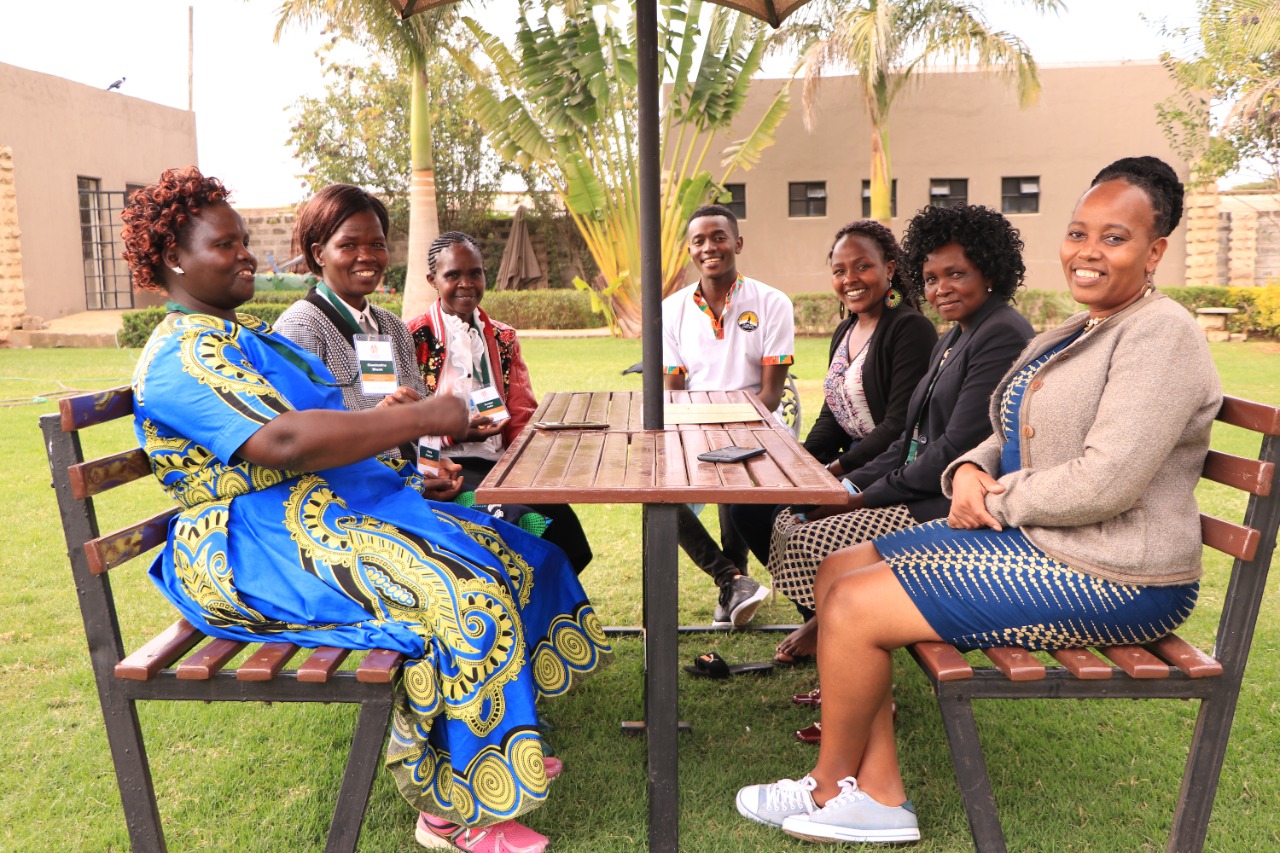
Defenders Coalition has begun processes of putting in place mechanisms to ensure an accurate account of the situation of human rights in Kenya during the period leading up to the 2022 primaries.
Through a partnership with the Embassy of Germany in Kenya, the Defenders Coalition has begun a process of enhancing the capacities of human rights defenders(HRDs) in conducting an objective monitoring, documentation and reporting on human rights violations.
The HRDs are also equipped with a skill set for safety and security while conducting the monitoring, documentation and reporting activities to protect themselves, the victims and to avert possibilities of causing more harm to the victims.
The partnership also consolidates the role that Defenders Coalition play in documenting human rights violations and abuses related to the electoral process, including by identifying grass-root and national trends and patterns of violations and abuses, and taking preventive and corrective measures on specific human rights issues through advocacy and intervention during the electoral process.
Approaching the last twelve months until the polls day, it is imperative that the field presence be strengthened. During this first phase, 75 monitors from all the 47 counties in Kenya were dispatched to monitor human rights issues related to the electoral process.
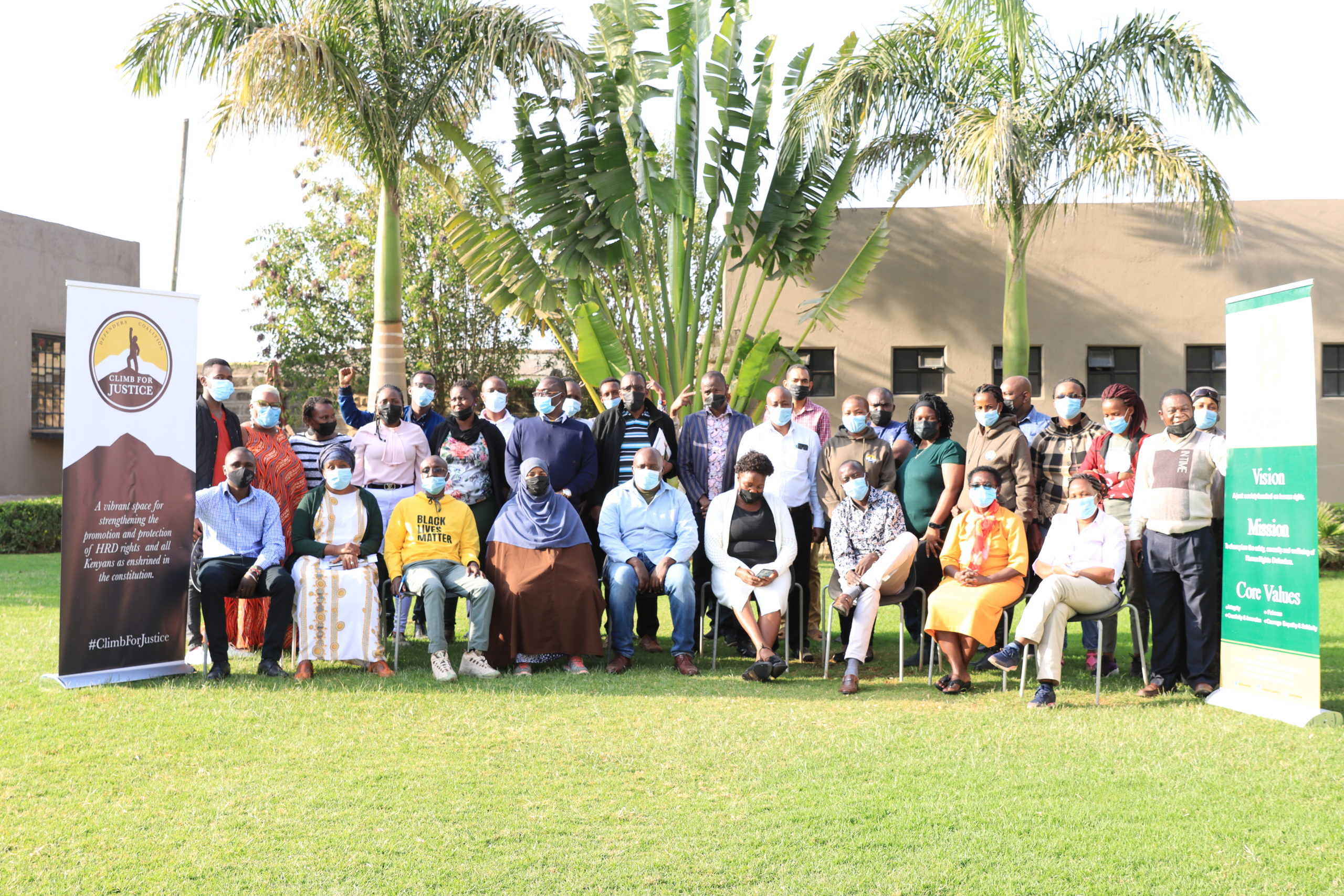
This type of monitoring is distinct from general electoral observation and verification, which focuses on technical issues during elections. In fact, monitoring during elections does not differ significantly from regular human rights monitoring, but requires heightened attention to specific issues or groups of people such as key populations, indigenous people, the youth, persons with disabilities etc.
Monitoring human rights during this electioneering period will serve a number of purposes:
The overall goal of this engagement is to have genuinely free and fair elections to constitute sustained efforts to protect and promote human rights.
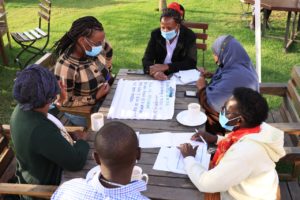
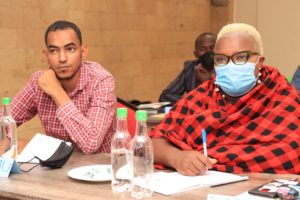
In the past elections in Kenya have raised political temperatures which give an unsecure working environment marred by violence. This has escalated which has been fronted from ethnic lines by the political elite. The last three general elections have recorded violence and destruction of property as a result of political differences being used to push ethnic political agendas. The 2007 election is the most memorable as there was two months of bloodshed where over 1,000 people died and up to 500,000 internally displaced persons in a country viewed as a bastion of economic and political stability in a volatile region.
As the country gears towards the August 2022 General Election, the human rights community is keen to play a critical role in ensuring the elections credible, free and peaceful and that the outcome represent the aspiration of people living in a democratic state. The traditional contribution of Human Rights Defenders in such a process is to ensure that citizens are sufficiently sensitized to play their civic duty to elect their leaders, monitor the election process ensure it meets international standards and document malpractices and human rights violations to facilitate timely intervention and hold violators to account. This role is more critical in Kenya where elections are hotly contested, often violently resulting in massive human rights violations. During such periods, Human Rights Defenders (HRDs) who empower citizens to elect leaders that drive their aspirations become target for threats, personal injury, loss or damage of their equipment or their work is inhibited by restrictive laws, policies and practices. Despite the risks, HRDs remain committed to advance human rights, respect for laws and citizen rights freely choose their leaders without inhibition.
Conscious of the critical role of HRDs in the election process and risks that they face when they work to promote and protect human rights, the Defenders Coalition and in partrnership with the Embassy of the Federal Republic of Germany, Nairobi has established a support project for human rights defenders that will monitor human rights situation and situation of HRDs during the 2022 Elections. The role of the Defenders Coalition in the context of elections would be to document human rights violations, including by identifying local and national trends and patterns of violations and abuses to HRDs, and taking preventive or corrective measures on specific human rights issues through advocacy partnerships during the electoral process.
Defenders Coalition plans to deploy human rights monitors in different parts of the country, especially in areas where there has been a history of violence to document human rights violations and violations of rights HRDs violations but also offer monitors critical skills to manage their personal and information safety as well as skills in quality monitoring and documentation of violation.
Defenders’ coalition seeks to conduct one training for Human rights defenders from all the 47 counties to equip them with skills on monitoring, documenting and reporting. The trained HRD monitors will then conduct monitoring which will commence immediately after the training so as to map out potential hotspots and areas which will need attention the coming year during the general elections. The project will initially target 65 monitors, men and women HRDs drawn from all parts of the country for skills building in monitoring, documentation and reporting.
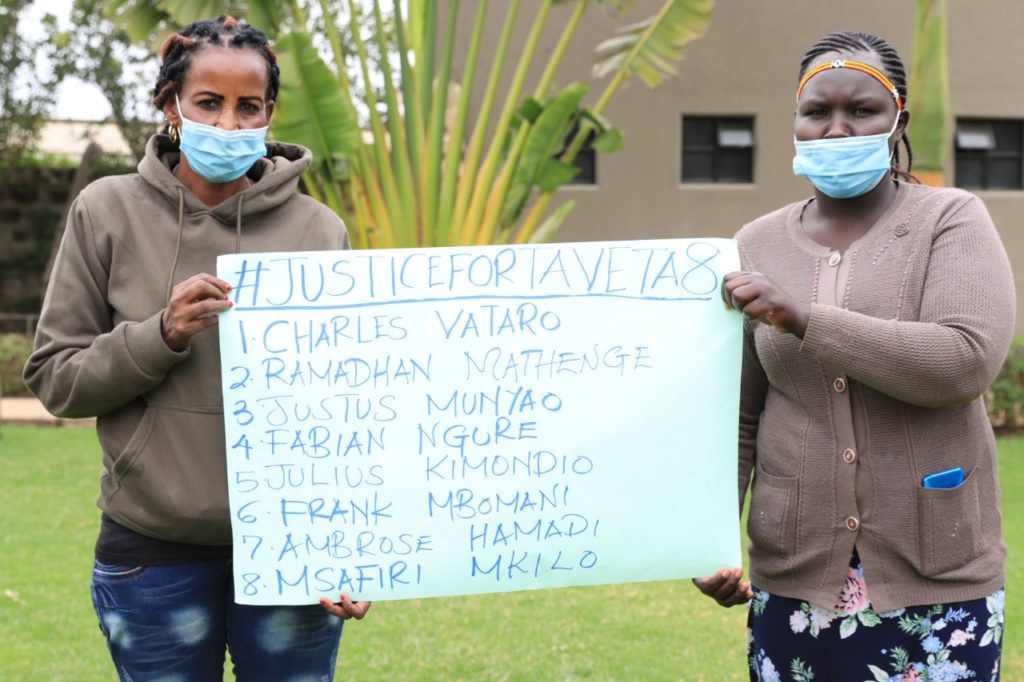
Eight (8) activists from Taita Taveta County in the coastal region of Kenya are now facing the risk of serving three (3) months of jail time based on a ruling delivered on Monday 2 August 2021 by a Taveta Law Courts magistrate.
The ruling criminalizes the work of defending human rights by rights defenders who, despite the many challenges in their communities, stand tall in mobilizing and organizing communities to stand against violations.
The criminalized Human Rights Defenders (HRDs) are Charles Vetaro Mwanzia, Ramadhan Mathenge Kamosu, Justus Munyao, Fabian Ngure, Julius Kimondio, Frank Mbomani, Ambrose Hamadi, Msafiri Mkilo.
The judgement was delivered on Criminal Case Number. 381 of 2016.
The 8 HRDs who were arbitrarily arrested in 2016 had been detained and charged with the offense of ‘taking part in unlawful assembly contrary to section 79 of the Penal Code.’ This is contrary to the provisions of Article 37 of Kenya’s 2010 Constitution which states that every person has the right, peaceably and unarmed, to assemble, to demonstrate, to picket, and to present petitions to public authorities.
At the time of their arrest on 31 October 2016, the eight were alongside 2 others who were not present in the court at the time the ruling was delivered earlier this week. Charges against the two were dropped with the prosecution citing “mistaken identity.” One of the remaining accused, Msafiri Mkilo has since died.
The Defenders Coalition understands that there is a high likelihood that eight were persecuted for organizing community members to stand against an unpopular adjudication of land by the national government.
Defenders Coalition, which is the National Coalition of Human Rights Defenders in Kenya is gravely concerned by this ruling as it criminalizes the very existence of human beings who must interact from time-to-time to exchange ideas and organize within their communities.
The ruling is punitive, unreasonable, and unjustifiable as it goes against open and democratic society that is based on human dignity and freedom. It sets a bad precedence for other hundreds of HRDs who have been similarly criminalized for assembling to promote human rights or express their discontentment with the actions of the government of the day.
“The criminalized HRDs were accosted from their own office and charged with a trumped up charge of unlawful assembly. These are members of a non-governmental organization that is registered by the same government that is prosecuting them. Building Africa were running civic awareness programs in Taita Taveta County and maintained an office in Taveta,” noted Kamau Ngugi, The Executive Director of Defenders Coalition.
Detained for hours without recording a statement
According to our investigations conducted by the our protection and legal team supported by the Defenders Coalition, One of the arrested HRD Mr. Ramadhan Mathenge Mwanzia noted that he was in their office conducting a regular meeting of members of the group when the police arrived and arrested them. He asked the police why they were being arrested but the question fell on deaf ears.
Their mobile phones were confiscated together with a camera. Consequently, they were detained at the Taveta Police station, with no statement whatsoever taken from them against the obvious dictates of natural justice.
“I am convinced that my work of mobilizing the community through a petition before the High Court on land allotment related to LR 5865/2 Taveta may have made some powerful government individuals unhappy,” Mr, Mathenge noted in one of the interviews.
Public order Act; the new criminalization frontier
This case against the #Taveta8 is not a solitary one. But it sets a dangerous precedent against other HRDs battling malicious cases in various courts of law across the country.
On 27 July 2021, Njeri Migwi, Ruth Bange, Wambui Ochieng, Moses Okoth, Rodgers Ochieng, Innocent Onyango, Julius Otieno were arrested in Kayole for calling to justice for an 8 year-old girl who was killed by a teacher in school.
Malicious charges including that of unlawful assembly were preferred against them. Although, they were released on bail, they have a date with the court and we are concerned that they may face the same fate as the #Taveta8.
On 7 July 2021, nine (9) HRDs Wilfred Olal, Erick Omuono, Erick Andati, Julius Kamau, Bosire Micheka, Mohammed Ismael, Kennedy Onyango, Wendy Wakesho, Boniface Muranda were incarcerated at the Nairobi Business District for taking part in a peaceful assembly to commemorate Sabasaba March themed #SabaSabaMarchForOurLives and #JobsOrRevolution.
The nine now face trumped up charges including contravening the Public Order (State Curfew) Order 2020 and are to appear in court for the mention of their cases on 25 August 2021.
In January 2021, HRDs Mr. Khalid Hussein (Executive Director of HAKI Africa), Ms. Beatrice Waithera and Mr. Ojiro Odhiambo were arrested for organizing a press conference at Uganda House to call on the Ugandan Government to denounce Ugandan police brutality, electoral injustice, to respect international Human Rights law and laws of Uganda during the presidential ballot in Uganda. The three were charged with unlawful assembly.
On 7 July 2020, 63 HRDs from various social justice centres across Nairobi who had staged a commemorative event of the Sabasaba and to reflect on the dissident conduct of the government towards the adoption of one of the most progressive constitutions in the world were similarly violently arrested and charged with contravening public order regulations.
It is no secret that the state is determined to silence, by intimidation or punish HRDs, through misusing the Public Order Act.
Defenders Coalition appeals to the The National Police Service and the Office of Director of Public Prosecutions (ODPP) respects provisions pertaining to Article 37 of the Constitution of Kenya and the 1998 UN Declaration on HRDs.
While the Defenders Coalition mulls over appealing the ruling at the appellate court, the ODPP must be reminded and be guided by the Office of the Director of Public Prosecutions Act, No. 2 of 2013, which requires the ODPP to pay due regard to the fundamental principles comprising impartiality, rules of natural justice and the promotion of public confidence in the integrity of the office while delivering its mandate.
